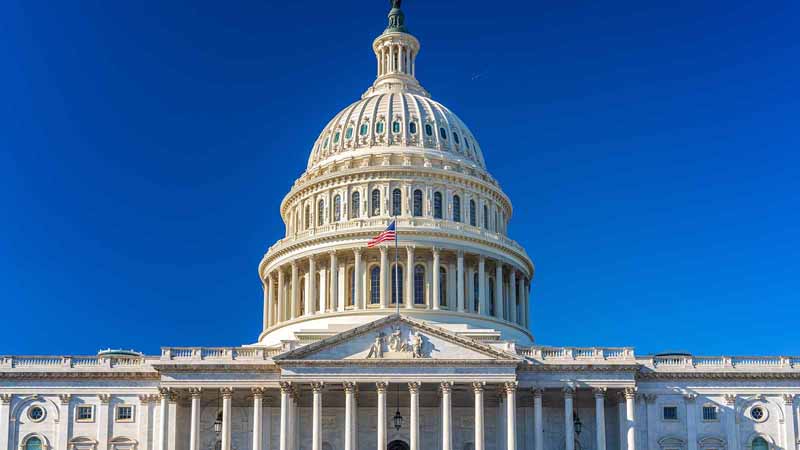The Senate Commerce Committee, seemingly a microcosm of larger bipartisan concern over alleged Big Tech abuses, voted last week to subpoena Jack Dorsey of Twitter, Sundar Pichai of Google, and Mark Zuckerberg of Facebook in advance of the hearing.
Section 230 protects online companies from liability for the content its users post and allows them to moderate content as they see fit. It has become a flashpoint in the runup to the 2020 presidential election, where incumbent President Donald Trump has claimed that Big Tech companies, namely Twitter, discriminate against conservatives.
In May, after Twitter posted tags to several of Trump’s tweets telling users that they were misleading or glorified violence, Trump ramped up attempts to punish the company. Shortly after, he signed an Executive Order that sought to cripple Twitter’s Section 230 protections.
While this Executive Order has had limited impact beyond demonstrating Trump’s alignment with Congressional Republicans, bilateral support for at least amending Section 230 has only grown since.
And although Congressional Democrats dispute claims of widespread bias, they have concerns of their own, perhaps the largest of which is behavior the Democratic-led House Antitrust subcommittee called anti-competitive in a blockbuster hearing in August.
Subcommittee Chairman David Cicilline, D-R.I., cited the incentive for Google’s search engine to steer users away from services that compete with its own. Other representatives noted Amazon’s ability to undercut manufacturers selling their products on its website by using existing factories to produce its own competing product. Likewise, members of the committee also grilled Facebook for its acquisition of competitor Instagram, and Apple for stringent app development requirements in its App Store.
The executives emphatically denied allegations of anti-competitive activity during the hearing, but Cicilline nonetheless called for government action.
“This hearing has made one fact clear to me: These companies as they exist today have monopoly power,” Cicilline said about Amazon, Apple, Facebook, and Google. “Some need to be broken up. This must end.”
This time, the hearing comes about a week before November 3, when millions of Americans will vote either in-person or by mail after a turbulent election cycle that experts have described as rife with false information.
Much of this misinformation has proliferated online, where analysts of foreign election interference say Russian actors are attempting to muddy the waters of American political discourse.
“The Russians are trying harder to hide; they are increasingly putting up more and more layers of obfuscation,” said Ben Nimmo of social media analysis firm Graphika in an interview with the New York Times. “But they are still getting caught.”
These misinformation campaigns have forced the social media companies to take drastic measures. Over the summer, Twitter removed over 23 thousand fake Chinese accounts found to be actively sharing false content. The website also removed about 150 thousand accounts solely devoted to disseminating Chinese state propaganda.
In tweets from its public policy account, Twitter called attempts to amend Section 230 “reactionary and politicized” and said that the hearing should focus primarily on election security.
“[This hearing] must be constructive & focused on what matters most to the American people: how we work together to protect elections,” the tweet said.
However, it is unlikely that the Republican-led committee will honor this request. In advance of the hearing, Chairman Roger Wicker, R-MS, said that the committee requested the CEOs testimonies so they could “reveal the extent of influence that their companies have over American speech during a critical time in our democratic process.”
Whichever line of questioning dominates the hearing, the influence of these companies cannot be overstated.
Each of the companies has come to dominate American public life. With over 112 million Prime users as of 2019, Amazon has become the face of online shopping. Facebook’s 2.7 billion users make the platform the largest of its kind. And Donald Trump’s primary use of Twitter has given the social network publicity among groups less likely to use it themselves.
Further, the value of these companies is skyrocketing amid increased usage. Amazon CEO Jeff Bezos’s net worth topped $138 billion earlier this year shortly after the net worth of his company surpassed $1 trillion. As of August 2020, Facebook’s value has more than doubled since 2016 — reaching an estimated $720 billion. Likewise, Twitter’s worth has grown from about $8 billion in 2013 to over $36 billion in 2020.
This growth will undoubtedly be a point of great importance in the hearing.
Whatever the case, to modify or repeal Section 230 could have seismic implications for the operations of these companies, a fact made more significant in the shadow of a Supreme Court nomination, a presidential election, and a pandemic.
About the Author
Elijah Labby is a graduate of the National Journalism Center. He has previously written for Broadband Breakfast, a technology and internet policy website.

